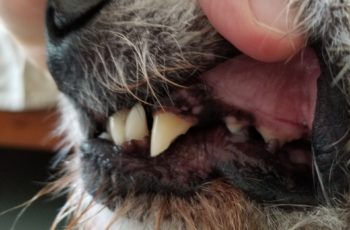Dogs can gain weight due to a number of reasons. Diet, exercising, metabolism, and illnesses can all cause abrupt or gradual weight gain, much like humans.
Certain breeds are also well-known to be prone to weight gain. These breeds are generally not recommended for warmer climates as obesity can be dangerous when coupled with high body temperatures – making a heatstroke more likely during the hottest hours of summer months.
In this article, we will discuss the top 10 breeds that are known to be prone to weight gain and the reason why. Note that any dog that’s overfed, lacks exercise, or experiences a change in metabolism can become overweight and obese.
Notably, certain breeds such as the Shih-Tzus, Yorkshire Terriers, and German Shepherds are better at resisting weight gain.
Why are Some Dogs More Prone to Obesity than Others?
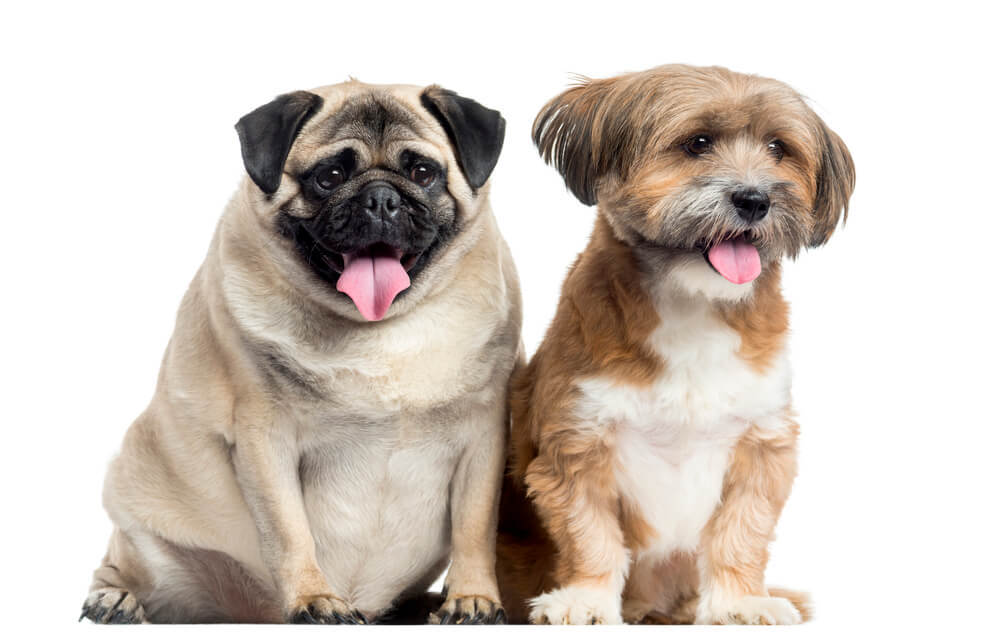
Some dog breeds are more prone to becoming overweight and later obese largely due to their genetics, greater appetites, and less active lifestyles when indoors.
If genes are not at play and the dog is receiving a balanced diet with ample exercise while still gaining weight, then it can be explained by an underlying medical condition or a complication that influences appetite or metabolism.
Labrador Retrievers
A group of 22 scientists published a study in 2016 in Cell Metabolism [1] that found a specific genetic deletion in some Labrador retrievers made them significantly more prone to gaining weight. This genetic mutation makes the dogs gain more body fat and have a greater food motivation.
The researchers also hinted that this mutation might also influence other behavioral traits in the affected dogs.
Rapid or Sudden Weight Gain in Dogs Regardless of Breed
Some dogs can get overweight very quickly in a short amount of time. This mainly happens during a drastic change in food, lifestyle, environment, stress, etc. This can also be due to age. If you witness something similar then look for ways to correct your dog’s lifestyle.
How to Tell if Your Dog is Overweight?
Each breed has certain weight and height averages. Check what average weight your dog breed has at a particular age to determine whether it’s overweight or not.
For example, a healthy golden retriever female should weigh 55-70 lbs. and a male should weigh between 66 and 75 lbs. If yours weighs respectably more, it’s overweight.
The American Kennel Club did a survey back in 2014 [2] and found that over half (52.7%) of US dogs were overweight or obese. Worse yet, 95% of pet owners don’t even realize that their dogs are overweight.
Identifying chubby dogs as okay is becoming increasingly normal. This isn’t just limited to dog owners. Pet owners, in general, need to realize that an overweight pet is more prone to illnesses and also likely to have a shorter lifespan than average. This is an alarming issue and nobody seems to be talking about it.
Don’t be a bad master to your dog. Identify chubbiness early on and make dietary as well as lifestyle changes to make your dog fitter.
Check out this visual breakdown from Purina below.
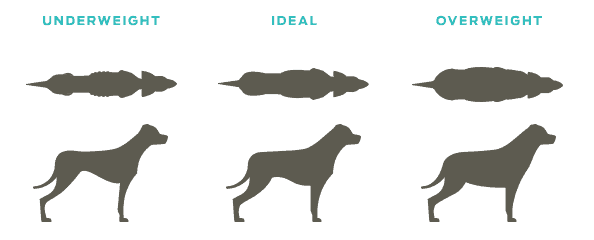
- You should be able to see or feel their ribs under their coat.
- You should be able to see a waist when you look from the side and also from above.
- Your dog should not have a sagging or rounded belly when viewed from the side.
How Can I Help My Obese Dog?
Keeping your dog’s weight in check is critical to improving its quality of life and life expectancy. It also helps keep illnesses in check. Diabetes and heart diseases tend to affect overweight and obese dogs of all ages and breeds.
Recommended Dog Foods for Losing Weight
Switching your dog to a food designed for weight loss should be done in conjunction with your vet’s advice. As a guideline, look for foods with less than 400 kcal/per cup.
Other criteria to look for include:
- features a whole protein as the first ingredient.
- is free from artificial colors, flavors and other additives.
- is made in a country with high safety standards such as USA, Canada, Western Europe, Australia or New Zealand.
- features NO unidentified meat meals or byproducts.
Here’s our top three recommended commercial dog foods for weight loss: Wellness Complete Healthy Weight, Nutro Natural Healthy Weight and Wellness CORE Reduced Fat.
To workout how many calories you should be feeding your dog, check out this body weight chart issued by the World Small Animal Veterinary Association.
Top 10 Fattest Dog Breeds
Obesity can affect almost any canine. The situation is worse in city apartments of people leading busy lives where dogs don’t get the right diet and exercise to stay lean and fit. Packing on a few pounds becomes much easier if your dog is staying indoors for the majority of the day.
Here are the top 10 dogs that are more prone to obesity:
1. Golden Retrievers

A study by the Royal Veterinary College of the University of London published in the Journal of Small Animal Practice [3] found that golden retrievers are the most likely to be overweight. The 2007-2013 Pet Obesity Survey [4] by the Association for Pet Obesity Prevention also found that 62.7% of surveyed golden retrievers were overweight or obese.
- Golden retrievers just love to eat. Simple as that.
- Overfeeding coupled with lack of activity is dangerous – and that’s precisely what happens with golden retrievers in most American households.
2. Pugs
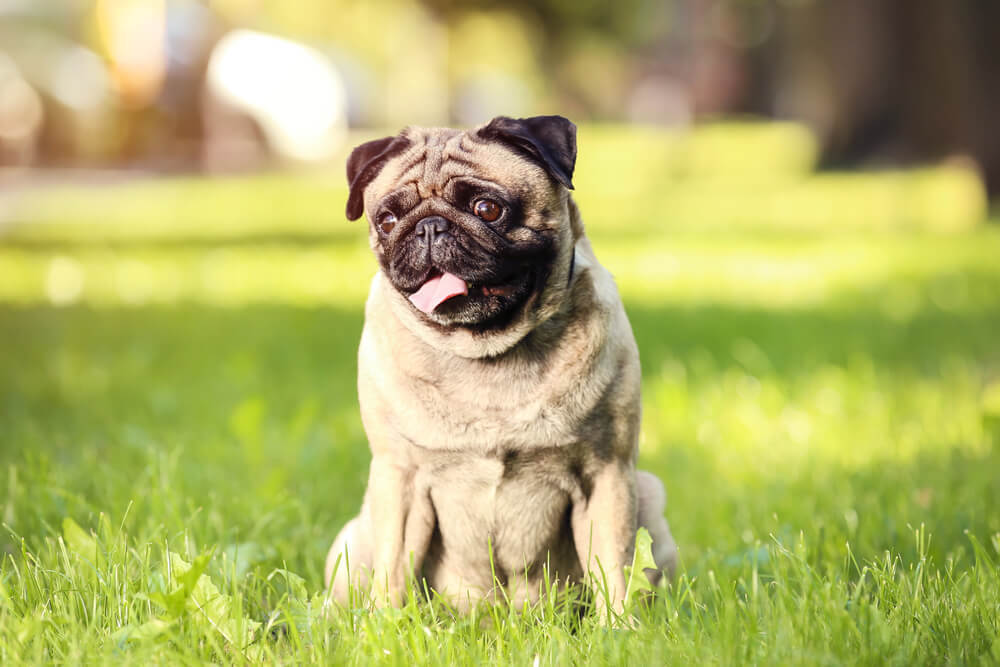
Pugs are famously more susceptible to weight gain than the majority of other dogs, perhaps barring golden retrievers that are very well fed and lazy.
- Pugs have a great appetite. The reason why pugs tend to gain weight easily is that they are not very picky when it comes to eating. Couple that with a perpetual hunger and food motivation and you have yourself the perfect munching machine!
- Pugs have a small body and a stocky build, which can create breathing issues upon overexertion. That’s why exercising pugs can be difficult, further adding to their weight gain.
3. Beagles
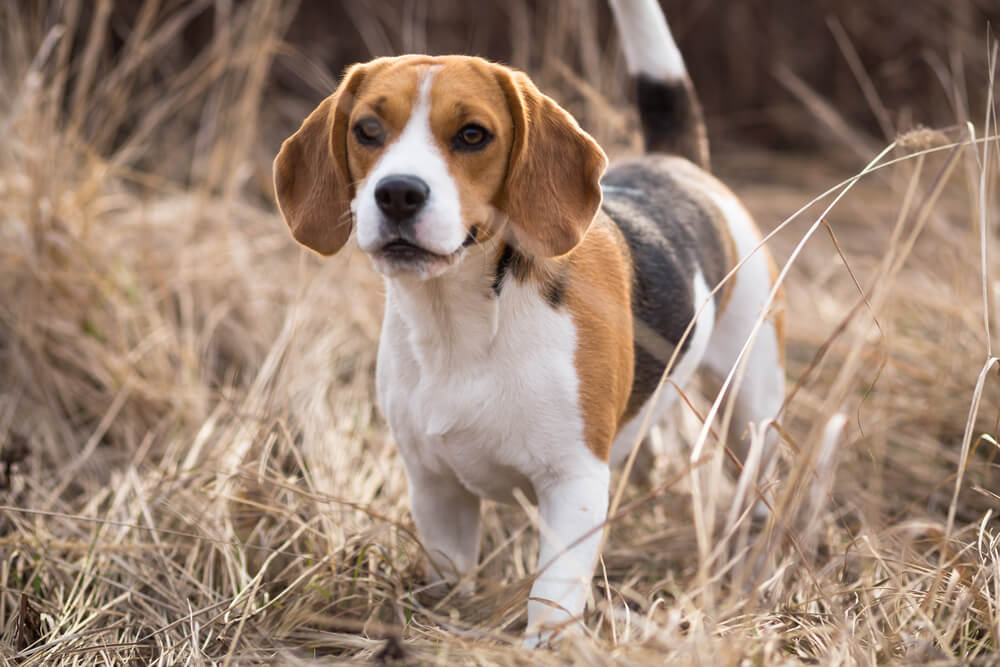
Beagles are quite active as they are originally a member of the hound family – a family of dogs developed and bred to hunt and track. However, most dog owners don’t provide sufficient exercise to their beagles.
- Beagles need a lot of exercising to stay fit. If you fail to maintain their active lifestyle, they will quickly gain weight.
- Beagles also have a generally higher-than-average food motivation.
4. English Springer Spaniels
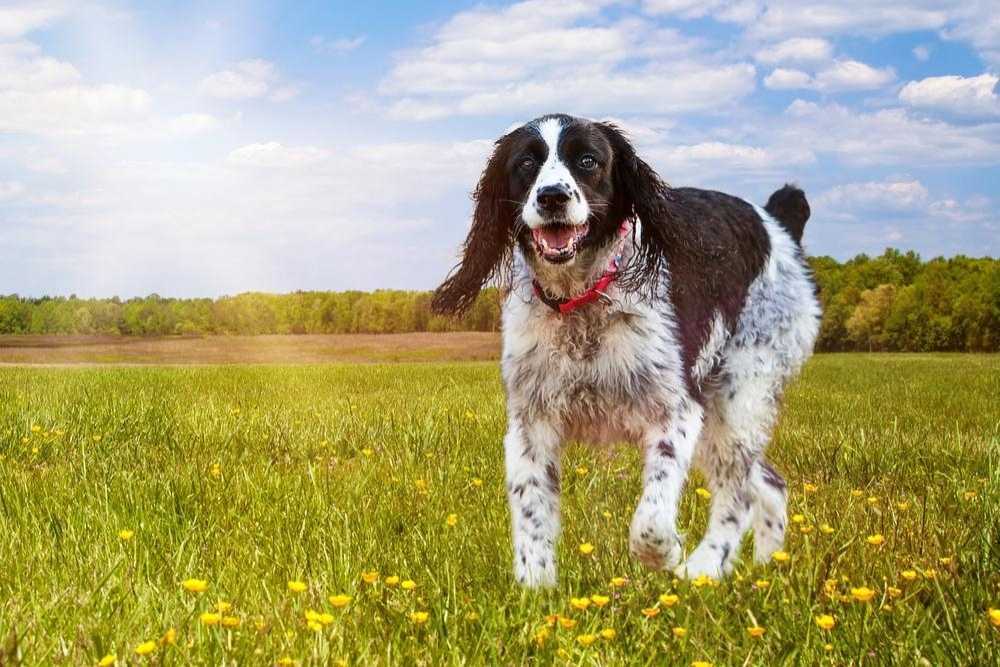
English Springer Spaniels boast of an active lifestyle. But at the same time, they can quickly gain pounds if you don’t keep their diet and physical activity in check.
- In some cases, weight gain is genetic in English Springer Spaniels.
- Inactive Springer Spaniels tend to gain weight considerably fast.
5. Border Terriers
Border terriers also tend to gain weight. It’s not always clear why. The best way out if your border terrier becomes overweight or obese is to reduce the number of meals and choose only low-calorie, low-fat meals.
6. Labrador Retrievers
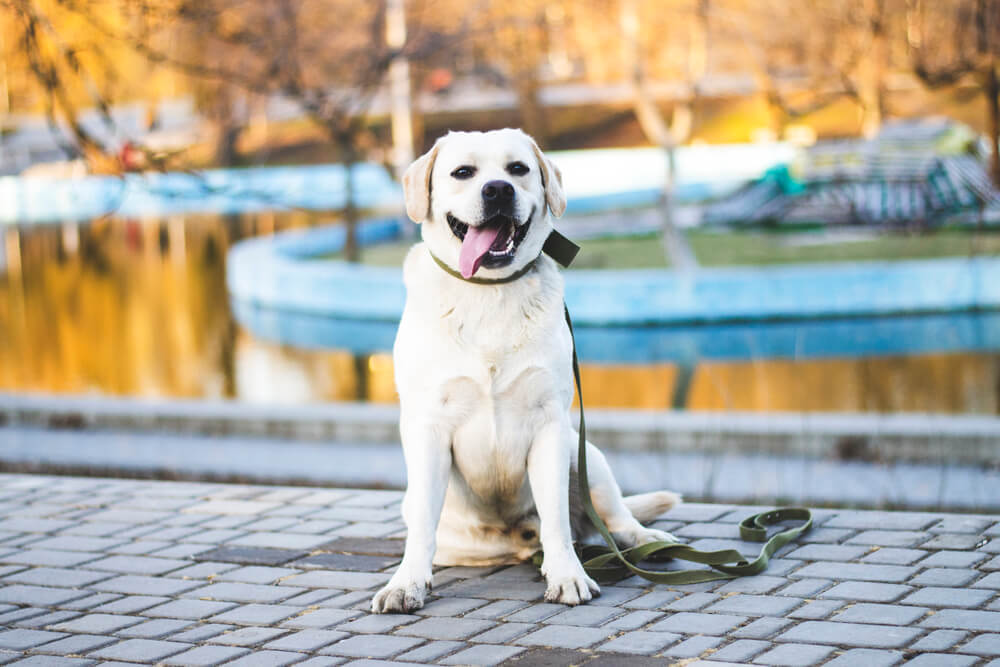
As mentioned above, a genetic mutation can also affect Labrador retrievers in terms of weight gain and appetite [1]. Insatiable Labrador retrievers are all too common in developed countries, and this mutation is to blame. The only thing you can do here is switch to healthier snacks that also satiate.
7. Cocker Spaniels
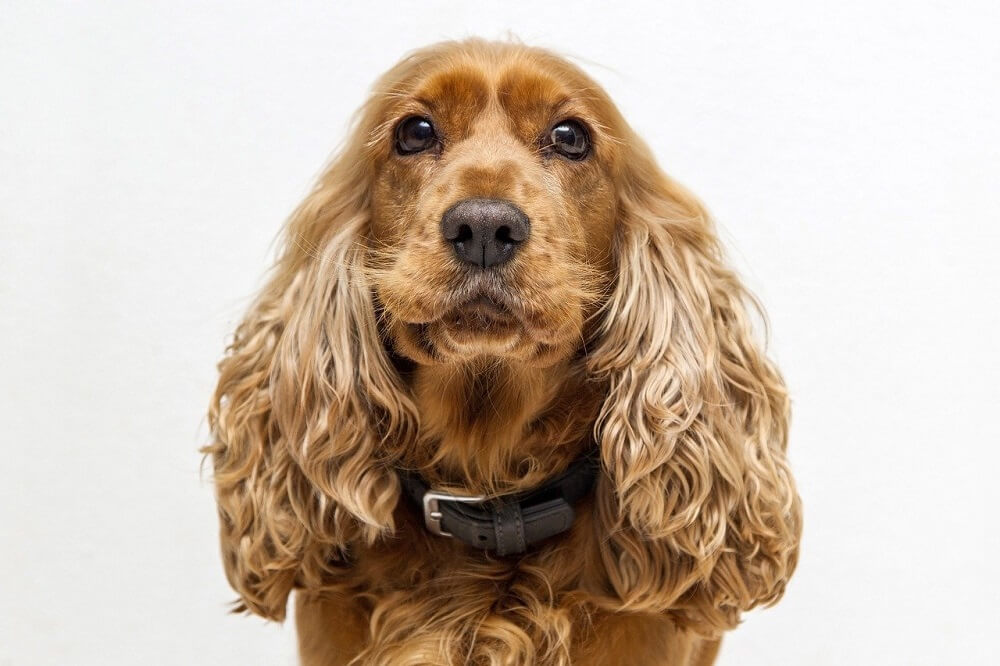
Hypothyroidism is common in Cocker Spaniels. This condition can cause significant weight gain and tiredness.
Apart from that, Cocker Spaniels are also prone to common pitfalls such as overeating and not being active enough. Don’t spoil your dogs!
8. Border Collies
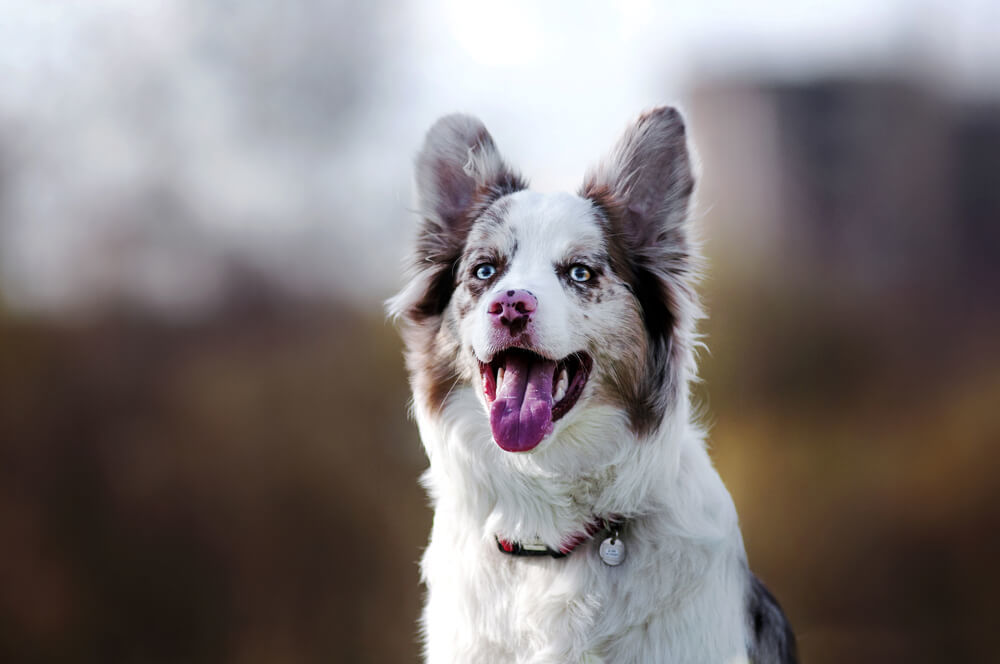
Generally, overfeeding and lack of exercise are, again, the most rampant reasons behind weight gain for border collies. Metabolic changes, illnesses, injuries, and aging are also common issues that can make your border collie put on a few pounds. Get a checkup done to make sure.
9. Basset Hounds

Basset hounds are hunting dogs. They were originally bred for endurance and chasing. However, an indoors lifestyle makes them lazy. This leads to weight gain. Basset hounds on farms will stay slim and lean, whereas those in city apartments will most likely gain weight before you know it.
10. Cairn Terriers
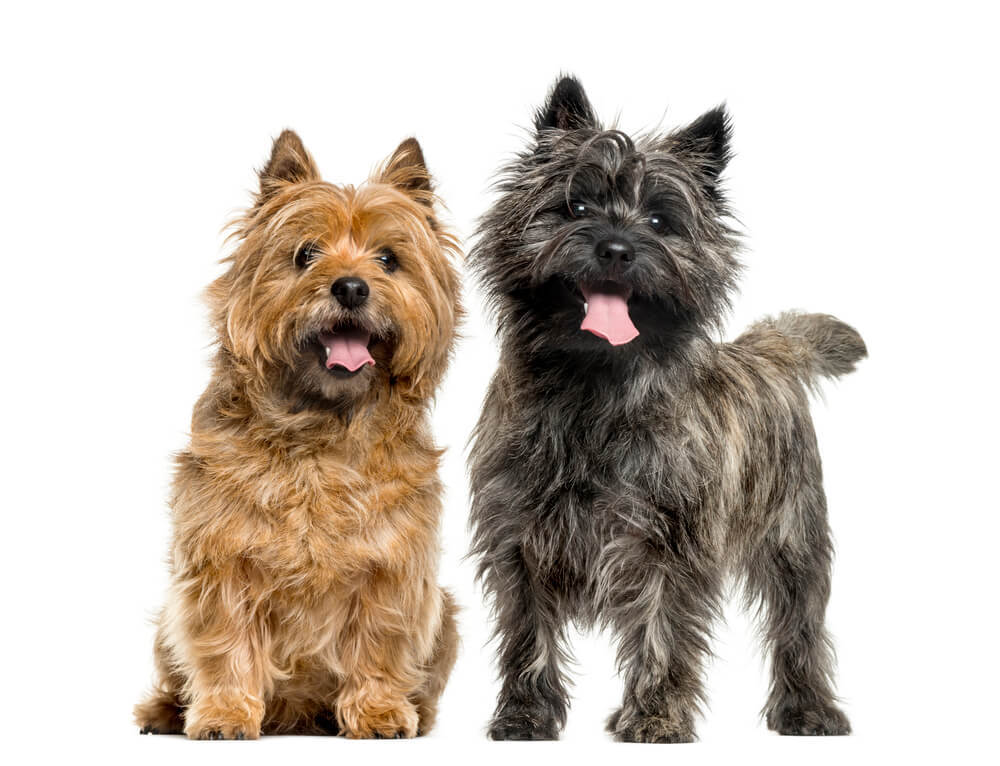
Cairn Terriers need a lot of activity to stay fit and not become chubby. If you spoil them with doggie treats and leftover food every time they beg for it, you are in for a surprise. Cairn Terriers can put on weight in a remarkably short period when fed incorrectly.
Dog Breeds Not Prone to Obesity
And then some breeds are genetically programmed to resist weight gain, or at least sudden weight gain, even if they become largely inactive or lazy sometimes.
- Shih-Tzus
- German shepherds
- Yorkshire terriers
- Chihuahuas
- Lean and skinny breeds such as greyhounds, Italian greyhounds, Indian Kanni and pariah dogs, whippets, Sloughi dogs, Silken Windhounds, Ibizan hounds, Saluki dogs, pharaoh hounds, and Azawakh dogs are also less likely to gain weight.

